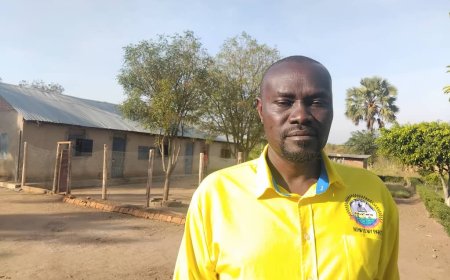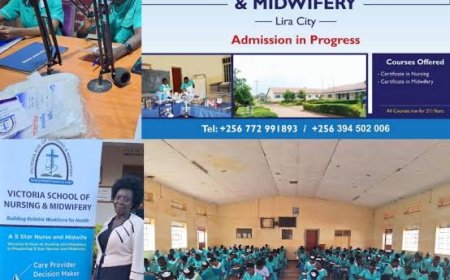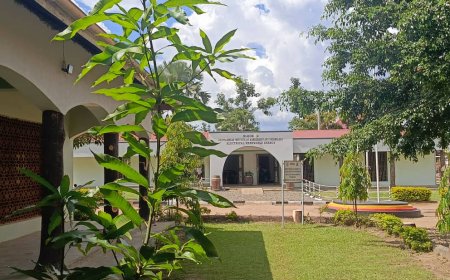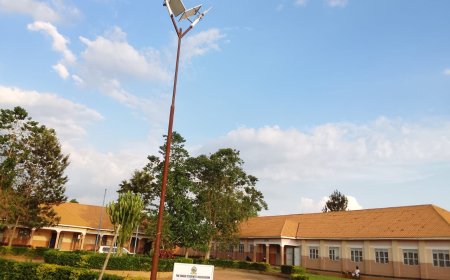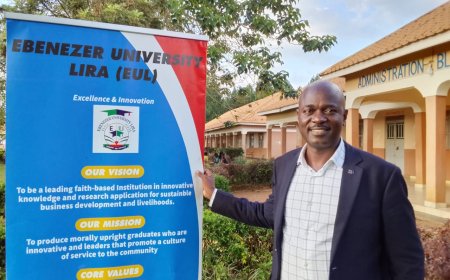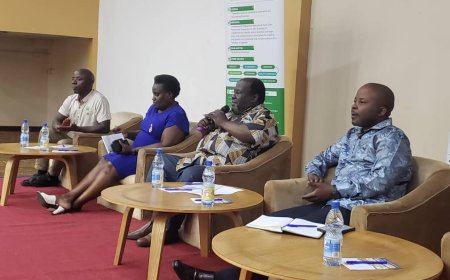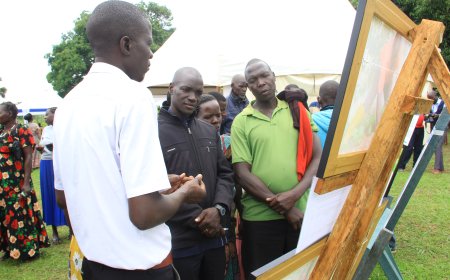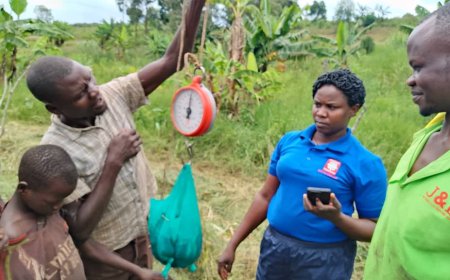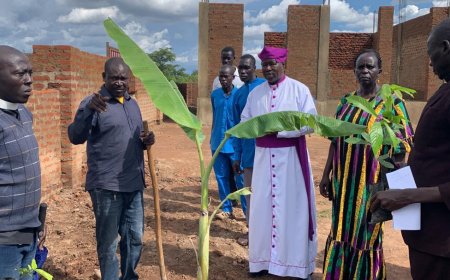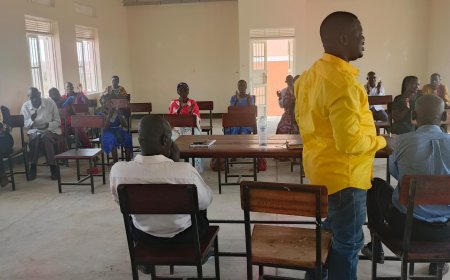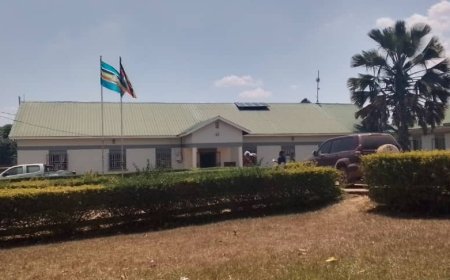Alur Kingdom Adopts 11 Key Strategies to Combat HIV/AIDS Prevalence
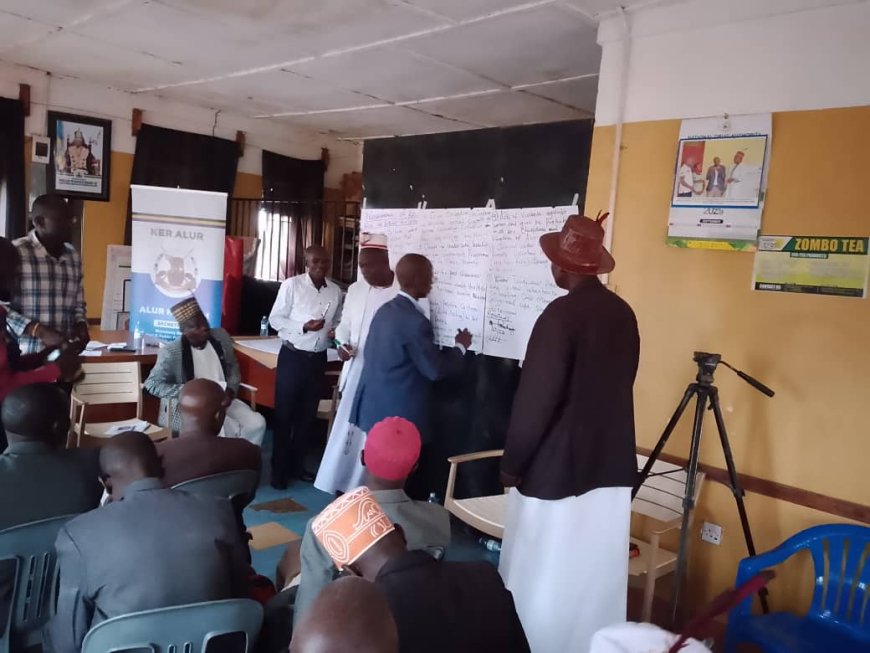

Alur Kingdom Adopts 11 Key Strategies to Combat HIV/AIDS Prevalence
By Mike Rwothomio
West Nile, Uganda ; The Alur Kingdom, spanning 56 chiefdoms in Uganda and eight in the Democratic Republic of Congo, has endorsed eleven strategic commitments to address the high prevalence of HIV/AIDS among its population.
These measures were established during a meeting on September 30, 2025, at the Alur Kingdom secretariat in Nebbi Municipality, led by the Kingdom’s Deputy Prime Minister, Vincent Orach Ocaya, and facilitated by Dr. Stephen Watiti , Commissioner of the Uganda AIDS Commission.
The meeting’s theme, “Ending AIDS as a Public Health Threat: Building a Sustainable Response in Ker Alur Kingdom,” underscored a proactive approach to this public health challenge.
The initiative was informed by concerning data presented by Hope Murungi, Coordinator for Civil Society and Private Sector at the Uganda AIDS Commission, revealing HIV prevalence rates of 4% in Zombo, 3% in Pakwach, and 3% in Nebbi.
Key drivers of new infections include non-adherence to antiretroviral therapy (ART), stigma and discrimination, multiple sexual partners, early marriage, poverty, and gender-based violence.
These align with the Uganda AIDS Commission’s vision of fostering “a united, peaceful, and healthy population.”
Dr. Amos Nyathirombu, the Alur Kingdom’s Minister of Health, facilitated a session where chiefs developed the following eleven commitments to curb HIV/AIDS:
Prevention of Underage Marriages, where Chiefs and cultural leaders will ensure that minors are prohibited from participating in traditional marriage ceremonies.
Consent Verification for Marriage, Traditional marriage certificates will be issued only after verifying mutual consent, ensuring no coercion.
Community Engagement: Chiefs will hold dialogue meetings within their chiefdoms to educate and engage communities on HIV/AIDS prevention.
Economic Empowerment: Chiefdoms will promote income-generating activities and skill-building programs to alleviate poverty, a key driver of HIV transmission.
Support for Government Programs: Chiefs will mobilize communities to participate in government initiatives aimed at reducing poverty and improving health outcomes.
HIV/AIDS Awareness Campaigns:
Chiefs will integrate HIV/AIDS education into cultural events and public gatherings to promote prevention and testing.
Promotion of Positive Cultural Practices: Chiefs will encourage beneficial cultural practices and discourage harmful ones that contribute to HIV spread.
Youth Engagement Platforms: Chiefdoms will establish “youth fireplace” forums to facilitate meaningful discussions on health and social issues.
Combating Gender-Based Violence: Acts of violence against women and girls will be prohibited and actively discouraged across all chiefdoms.
Promotion of HIV Testing: Cultural leaders will advocate for voluntary HIV testing, including self-testing, among their communities.
Elimination of Harmful Practices: Traditional practices such as widow inheritance, cohabitation, child marriage, and polygamy will be discouraged.
Dr. Nyathirombu emphasized the need to address cultural practices that exacerbate HIV transmission, such as low uptake of early antenatal care, unsafe practices by traditional birth attendants, and gender-based violence, including rape and defilement during activities like grasshopper harvesting.
He urged, “We must discourage risky cultural practices. Prevention is key, especially as external funding for HIV programs diminishes.”
According to the Uganda AIDS Commission, Uganda reports five new HIV infections hourly, 711 weekly, and 37,000 annually, with 54 daily and 384 weekly HIV-related deaths.
Regional data from Hope Murungi indicates South Buganda has the highest prevalence at 7.5%, followed by Acholi at 7%, Ankole at 6.3%, Lango at 5.8%, and West Nile at 2.3%.
Murungi stressed that cultural leaders must intensify efforts to address stigma, discrimination, and other risk factors fueling new infections.
Meanwhile Dr. Stephen Watiti, highlighted the critical issue of mother-to-child transmission (MTCT), with approximately 4,700 infants infected annually in Uganda due to inadequate antenatal care. He urged chiefs to educate their communities on MTCT prevention and combat stigma to foster a unified response to HIV/AIDS.
Orom Jeptar, Speaker of Ker Alur, expressed optimism about the preventive measures, encouraging chiefs to disseminate these messages to their communities.
The Kingdom's Deputy Prime Minister Vincent Orach Ocaya set an ambitious target of zero new infections by 2028, emphasizing intensified sensitization on antenatal care and stigma reduction.
However, Nebbi District HIV Focal Person, Ocan Alex Claudius, called on cultural leaders to champion community empowerment through HIV prevention messages.
Despite progress, Uganda faces challenges in eliminating MTCT, with a current rate of 466 per 100,000 live births against a validation target of 50 per 100,000, according to UNICEF. Reducing HIV prevalence among women aged 15–49 remains critical to achieving this goal.
According to the officials, this Alur Kingdom’s comprehensive strategy aligns with national efforts to focus on adolescents and young people to turn the tide against HIV/AIDS, reinforcing the role of cultural institutions in public health advocacy.
What's Your Reaction?











